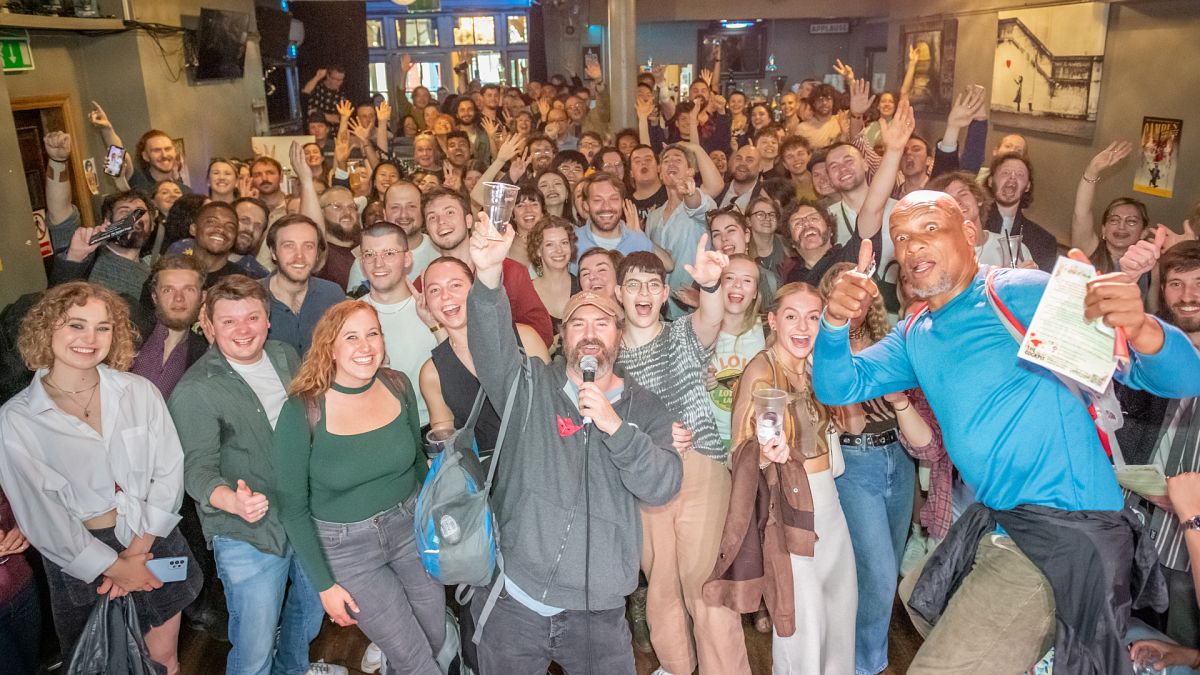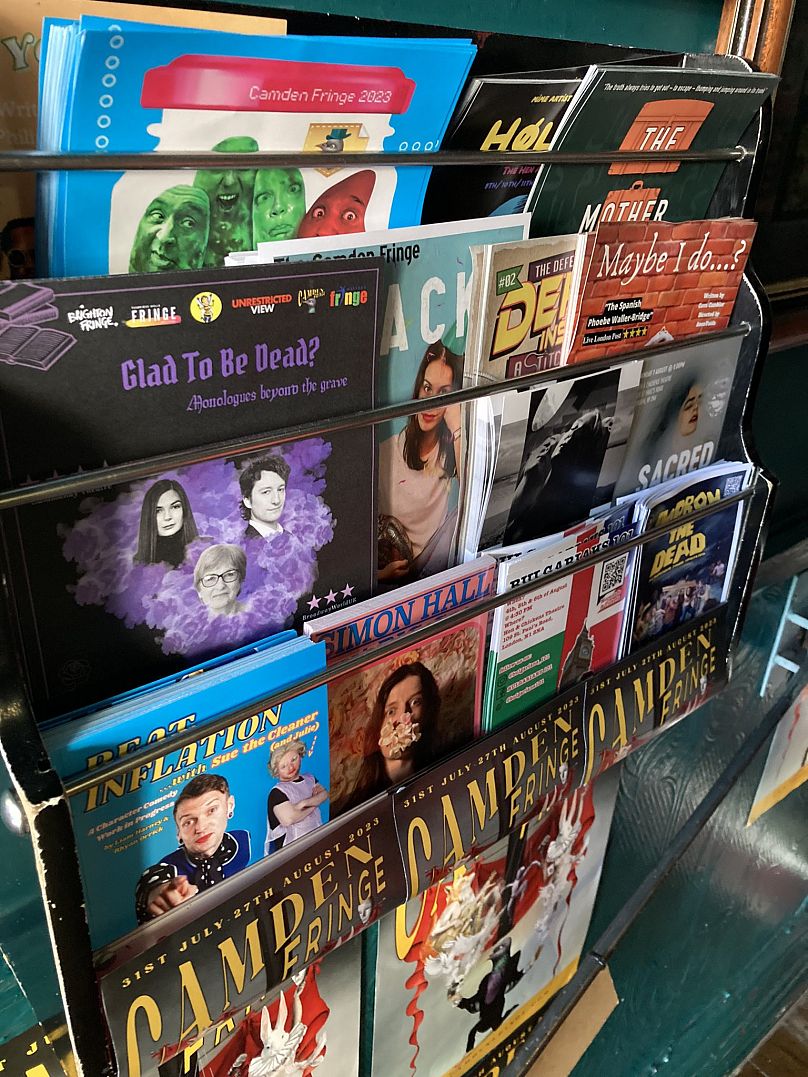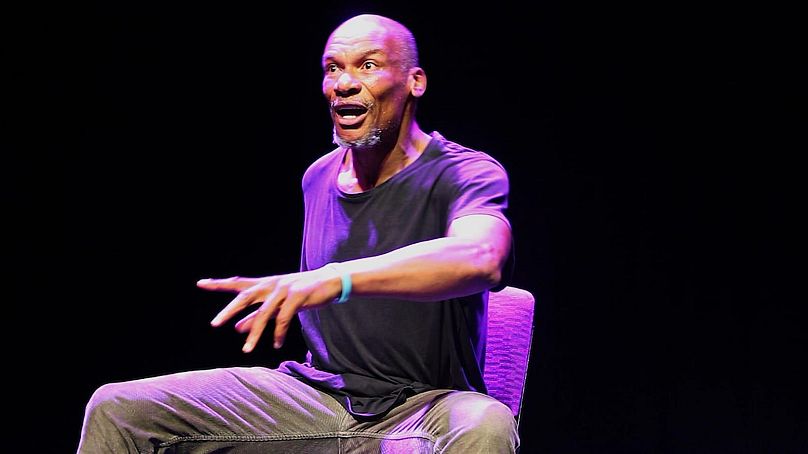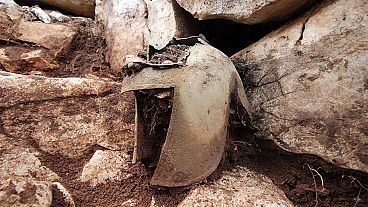We speak to the co-founder of the Camden Fringe, a more affordable alternative to the Edinburgh Fringe also on this month.
Every August, the biggest arts event in the world takes place in Scotland’s capital. The Edinburgh Fringe attracts thousands of performers to bring comedy, theatre and dance shows to audiences.
At its best, Edinburgh has hosted the breakthrough of some of the brightest stars in British culture. In recent years, it has been criticised for the high costs to actors and limited opportunities to grow a career.
While the Fringe takes over Edinburgh for the whole month, there’s another fringe festival boasting exciting shows but without the huge financial commitment. The Camden Fringe, set across many of North London’s best fringe theatre venues started on 31 July and will run to 27 August.
Hosting over 300 shows, the Camden Fringe is a 10th of the size of its Northern counterpart. But while Edinburgh lures in an international crowd for its scale, history and line-up, here’s why Camden is just as exciting.
The Camden Fringe was first set up by Zena Barrie and Michelle Flower. The pair had spent the past few years producing comedy shows to take to the Edinburgh Fringe while also running their own fringe theatre venue in London, the Etcetera Theatre.
“We were going up to Edinburgh and hiring venues, hiring places to live and spending an awful lot of money putting shows on whilst abandoning our venue in London for a month,” Flower tells Euronews Culture. At the time, the consensus on programming in August was simple. “Nobody wants to put on a show because everyone's gone to Edinburgh.”
Despite the huge expense of bringing shows to Edinburgh while they had a perfectly functioning theatre in Camden, for many years the pair accepted the status quo. Then, in 2006, Barrie had the idea of running their own Fringe Festival. Organised just at Etcetera Theatre, they’d hire out the venue for short runs of a few days.
“They had a great time in the London space while we were up in Edinburgh being pretty miserable,” Flower explains. “The next year, we decided to focus on doing the Camden fringe and we sort of built it from there.”
From just the Etcetera Theatre, the Camden Fringe has grown to span 31 venues in its 17th year. It’s grown slowly but assuredly, becoming a thrilling alternative to the more polished Fringe Festival in Edinburgh.
Along the way, the festival has faced its fair share of challenges. In 2011, the London Riots coincided with the Fringe. One performance at the Roundhouse was stopped with all the audience locked in for their safety. The next year, the London Olympics threatened to turn the capital into a ghost town with everyone’s focus on the games. Fast-forward to this decade and COVID-19 shut down the festival in 2020 while increased electricity prices put many venues running expensive theatre lighting systems at risk.
The Camden Fringe has weathered all these storms. Attendance in 2021 after the cancelled festival was the best it's ever been. As more comedians and theatre makers learn about it, it’s become an increasingly a popular alternative to going to Edinburgh.
For Errol McGlashan, a spoken word artist who is performing his debut play ‘Something to Take Off the Edge’, a monologue that traverses drug addiction, Shakespeare and prison time, he considers Camden invaluable.
“The festival provides a significant platform to showcase my work. It allows me, an amateur in the field, to reach a diverse and engaged audience, which is crucial for gaining exposure and recognition. Additionally, the chance to collaborate with various theatres and build networks is immensely beneficial.”
While McGlashan has spent much of his 12-year career seeking out theatres for performance opportunities, he points out the value of Camden Fringe’s proactive approach “where theatres genuinely want to host my show and actively engage with my work.”
Flower recognises that many acts will still want to perform at Edinburgh. For them, Camden can be a helpful stepping stone. Without the huge financial outlay, they can develop the show while practising the practical elements of putting on theatre.
Especially as the Edinburgh Fringe becomes more expensive — mostly due to the high costs of accommodation to stay in the city for a month — the opportunity to perform a short run in a London theatre is useful for a more diverse range of artists. “When people can't do grassroots stuff and develop their skills, then, it's going to be the case that only people who are already quite independently wealthy are able to try putting on theatre shows,” Flower says.
This year, the Camden Fringe has started a podcast where they explain every element of putting on a show, from how to develop a story to the nitty gritty details of risk assessment forms. “It's not a masterclass. But that's one way we're trying to help people get their feet.”
London itself is also no longer the creative haven it once was for theatre. The capital still hosts a vast array of high-quality big scale theatres in its West End and around, but for those starting out in the industry, it can look increasingly hostile.
This year’s National Portfolio announcement from Arts Council England (ACE) reduced the funding for many London venues in view of improving institutions in other parts of the country. The decision particularly affected new writing venues like the Donmar Warehouse and the Hampstead Theatre.
Added to the lack of government funding, steep rent rises and low wages for theatre makers has made London almost unliveable. Flower notes that many more acts are coming to this year’s Fringe from bases outside of London than before.
It makes the Camden Fringe an important light in a dimming room. A place where interesting and unusual artists can test out material without huge amounts of money backing them up. As tickets to the big shows at the West End creep up in price, many of the shows over the next month are hardly more expensive than a single drink.
“I think there is a real appetite for people to go and see fringe theatre still. People like going to see crazy stuff,” Flower says. “It’s fun to be able to take a chance on stuff and see something that has a gem of greatness about it.”





